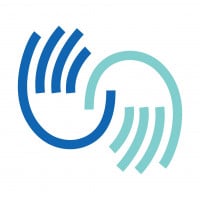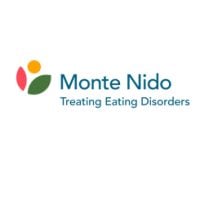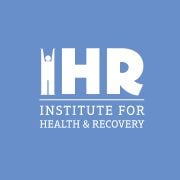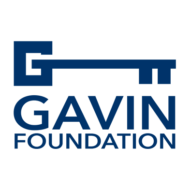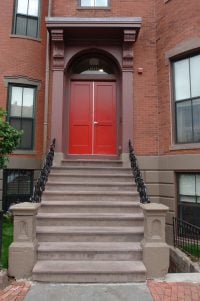Boston Alcohol and Substance Abuse
Drug Rehab Center in Boston, Massachusetts
BASA is a premier treatment facility in the Boston area for individuals struggling with addiction issues, offering a full range of care and personalized care plans that include traditional evidence-based therapies and holistic and experiential therapies.
About This Boston, MA Facility
Boston Alcohol and Substance Abuse (BASA) is a premier treatment facility for individuals who are struggling with addiction issues and need help to pursue a healthier lifestyle. BASA provides a full range of care, from aftercare support and drug rehab to intensive outpatient services and detox, to individuals in Boston and its surrounding areas. Moreover, BASA specializes in treating alcoholism, dual diagnosis, opioid addiction, substance abuse and drug addiction.
In addition to traditional evidence-based therapies, like CBT and DBT, BASA also offers a range of holistic and experiential therapies, like couples therapy, family therapy, and trauma therapy. BASA accepts private health insurance, and trained staff provide personalized care plans in order to best serve the individual's needs and ensure they are receiving the best possible treatment. At BASA, everyone is treated with dignity and respect, and the team of experts ensures everyone reaches their goals of recovery and sober living.
Genders
Ages
Modality
Additional
Conditions and Issues Treated
Using both legal medications and illegal substances in order to maintain an addiction is substance abuse. Illegal substances can become addictive after a single use. If you are obtaining legal medications illegally, you may be suffering from substance abuse.
Fortunately facilities like Boston Alcohol and Substance Abuse in Boston, MA are here to help.
Opioid addiction treatment facilities in Massachusetts, like Boston Alcohol and Substance Abuse cover both illegal and prescription opioids abuse. Most plans include detoxification and subsequent medications to ease the process. Behavioral therapies and counseling are also necessary to resolve the root cause of addiction.
A dual diagnosis is when someone deals with both alcohol and mental or emotional disorder. Emotional trauma, bipolar disorder, schizophrenia, depression can be part of dual diagnosis therapy. It must happen simultaneously to get care for these conditions to handle any of them effectively.
Levels of Care Offered
This center offers a variety of custom treatment tailored to individual recovery. Currently available are Aftercare Support, Detox, Drug Rehab, Dual-Diagnosis, Intensive Outpatient, Intervention, Outpatient, with additional therapies available as listed below.
Detox is a drug rehab process that is designed to remove the drug addict from the drug safely. The problem with solely using detox as a sobriety tool is that it alone provides no therapy or counseling. If a person goes through detox and returns to their everyday life, they may begin using again once the detox has worn off.
Detox does not help with cravings, so for some addicts, this can be extremely difficult and should be both done and supervised by medical professionals. Aftercare is crucial, so selecting a facility that offers additional services is important.
An outpatient treatment program is set up to help with alcohol or drug addiction, or a co-occurring disorder. The patient must attend the Massachusetts facility for their therapy and other programs but are able to return home each night. The frequency of mandatory attendance decreases after much of Boston Alcohol and Substance Abuse‘s program is complete.
Not everyone who struggles with addiction in Massachusetts is ready to go into a treatment program. For these individuals, intervention services may help. Friends and family of the individual can call and set up an intervention. We have a professional come and lead the discussion.
Treatment is just the first step to maintaining sobriety. After treatment, aftercare support at Boston Alcohol and Substance Abuse helps the individual adjust to a life without substances. This support may involve a sober living home in or near Boston, MA, career counseling, or educational assistance. This is when a relapse prevention plan begins to take shape.
Boston Alcohol and Substance Abuse‘s Therapies & Programs
Treatment programs include individual therapy for the greatest chances of success. Customized individual therapy is counseling involving you and your Boston Alcohol and Substance Abuse counselor. Individual therapy leads to greater peace and understanding about your triggers for addiction.
Spousal relationships bear the brunt of alcohol and drug dependence. It becomes critical to submit the relationship to couples therapy to prevent straining it further. Some facilities like Boston Alcohol and Substance Abuse in Boston, MA offer couples therapy options to manage intimate partnerships amid the recovery process. Other couples-focused treatment plans can provide the patient and their partner tools to get things back to normal.
When family members are more proactive and involved in the treatment procedure, it encourages the patient to advance his or her progress. Moreover, it shouldn’t be ignored that genetics play a role when it comes to addiction, so it’s better to approach the problem as a unit. Also, with proper education, family members can help an individual avoid addiction triggers and guide him or her in making lifestyle changes necessary for his or her sobriety.
It has been said that unhealed trauma is the root of most addictions. Trauma therapy is a way of addressing trauma while in a safe situation in order to heal. Healing past traumas and introducing coping strategies are strong foundations for sustained recovery from addiction. This may involve individual or group counseling or both, in a Boston, MA facility. Other forms of therapy have been proven to assist in healing past traumas.
Dialectical Behavior Therapy (DBT) helps those who attend Boston Alcohol and Substance Abuse understand how their feelings, beliefs, and thoughts affect their behaviors. DBT is particularly useful for people with self-harming behaviors, as well as those with substance abuse disorders. DBT teaches people how to tolerate distress, regulate their emotions, and how to become mindful.
Cognitive Behavioral Therapy (CBT) is a type of psychotherapy that focuses on the underlying thoughts and behaviors that caused the problem of addiction in the first place and may cause a relapse. Negative feelings are common in substance abuse disorders, and if not recognized, they can cause co-occurring disorders.
CBT involves strategies that help to change the thinking and behavioral pattern by cognitive restructuring. In simple terms, it helps to remove negative thoughts and provides long-term benefits. Also, CBT promotes self-awareness, self-control, and healthy ways to respond to negative thoughts. It can be administered as a mono-therapy as well as a part of combination therapy.
The 12-step program is a part of substance abuse treatment. In this program, peers help each other to achieve the goal of abstinence. It was initially developed by the founders of Alcoholics Anonymous. Due to its huge success, the 12-step program is included as a part of other substance abuse treatments.
The 12 steps guide at an individual level. It begins with the individuals accepting that they are addicts, and they understand its consequences. It is followed by focusing on the recovery process and making amends for hurting others. The program provides the benefit of cognitive restructuring, which refers to the process of change in the negative thoughts that leads to long-term benefits.
Patient Experience
Experiential Therapy at Boston Alcohol and Substance Abuse
Experential therapy is a unique type of therapy that deals with the subconscious mind. This treatment offered by Boston Alcohol and Substance Abuse in Boston, MA encourages individuals to work out their issues with their inner self. Some of the most common examples of experiential therapy are equine therapy, music therapy, adventure therapy, and role playing.
Payment Options Accepted
For specific insurance or payment methods please contact us.
Is your insurance accepted?
Ask an expert, call (888) 674-0062
Additional Details
Specifics, location, and helpful extra information.
Boston, Massachusetts 02108 Phone Number(617) 482-5292 Meta DetailsUpdated November 25, 2023
Staff Verified
Patient Reviews
There are no reviews yet. Be the first one to write one.
Boston, Massachusetts Addiction Information
Massachusetts has one of the highest rates of drug abuse in the country. More than half a million Massachusetts residents abuse alcohol while more than 1.5 million use illegal drugs each year. This drug and alcohol usage is the cause of over 8% of all deaths in the state. In 2017, Massachusetts ranked in the top 10 of the states with the highest opioid overdose rates.
Boston has one of the highest rates of opioid abuse in the country. 1 in 10 residents struggles with substance abuse. Between 2013 and 2017, the number of opioid-related deaths in the area increased by 64%. There were over 1,100 overdose deaths in 2016. Detox is the first step in most treatment programs in Boston. This is where the person stops using drugs and allows their body to cleanse itself of toxins.
Treatment in Nearby Cities
- Great Barrington, MA (118.3 mi.)
- Abington, MA (18.4 mi.)
- Buzzards Bay, MA (48.0 mi.)
- Lorain, MA (75.6 mi.)
- Jamaica Plain, MA (4.2 mi.)
Centers near Boston Alcohol and Substance Abuse
The facility name, logo and brand are the property and registered trademarks of Boston Alcohol and Substance Abuse, and are being used for identification and informational purposes only. Use of these names, logos and brands shall not imply endorsement. RehabNow.org is not affiliated with or sponsored by Boston Alcohol and Substance Abuse.


